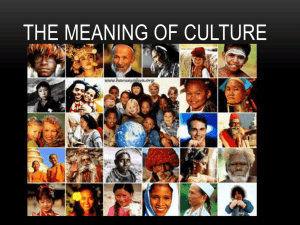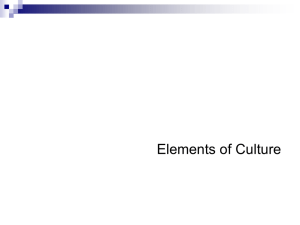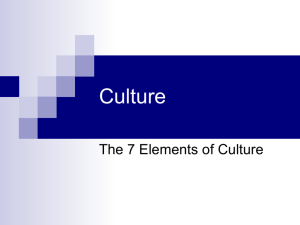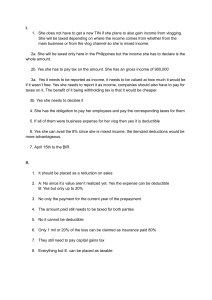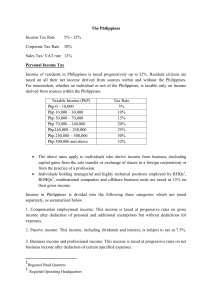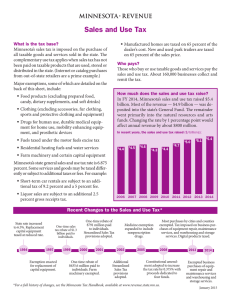Taxes Vocabulary
advertisement
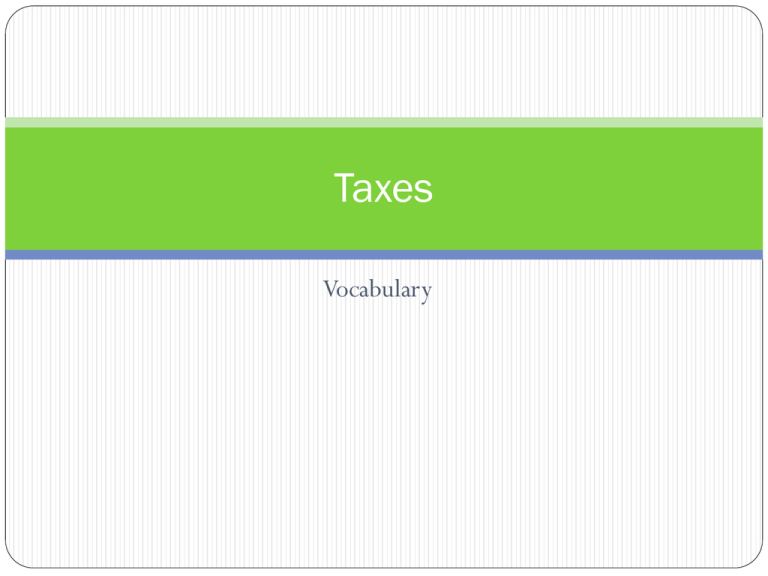
Taxes Vocabulary Ability to pay - The belief that people should be taxed according to their ability to pay; regardless of the benefits they receive. The U.S. individual income tax is based on this principle. Benefits-received principle – The belief that people should be taxed according to the benefits they receive from the good or service the tax supports. The gasoline tax is an example. Free rider – One who enjoys the benefits of a good or service without paying for it. Progressive tax – A tax that takes a larger percentage of income from people in higher-income groups than from people in lowerincome ones; the U.S. federal income tax is an example. Regressive tax – A tax that takes a larger percentage of income from people Taxes – Government fees on business and individual income, activities, or products to support government programs. Ethics – A set of principles or beliefs that govern an individual’s actions. Morals – A system of values and principles of conduct that promotes good customs and virtues while condemning bad customs and vices. Standard of Living – The quality and quantity of goods and services available to people, and the way these goods and services are distributed within a country. Quality of life – The overall enjoyment of life and sense of wellbeing. Voluntary compliance – A system that relies on individual citizens to report their income freely and voluntarily, calculate theirs tax liability correctly, and file a tax return on time, according to the rules established by the Internal Revenue Service.
